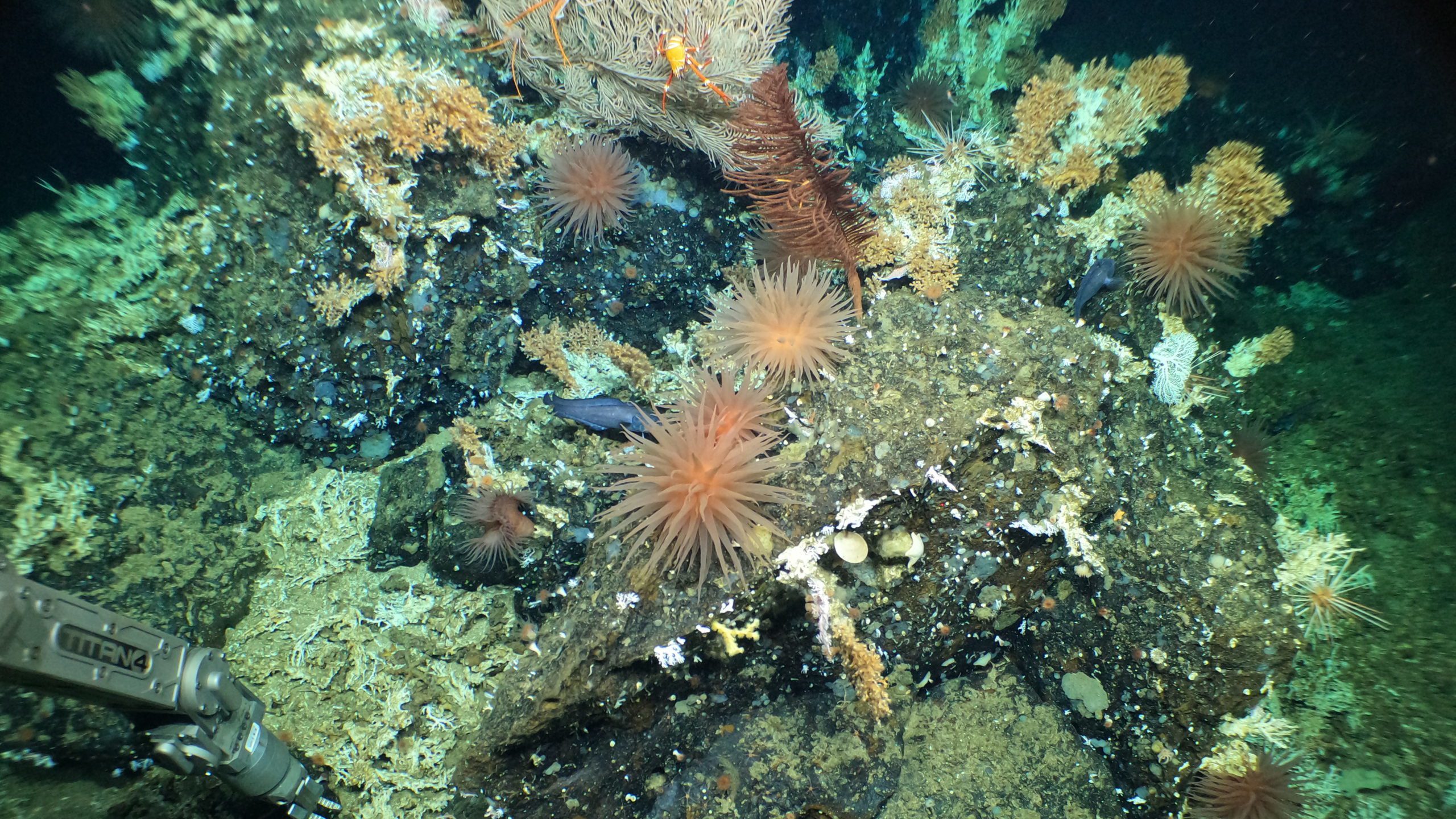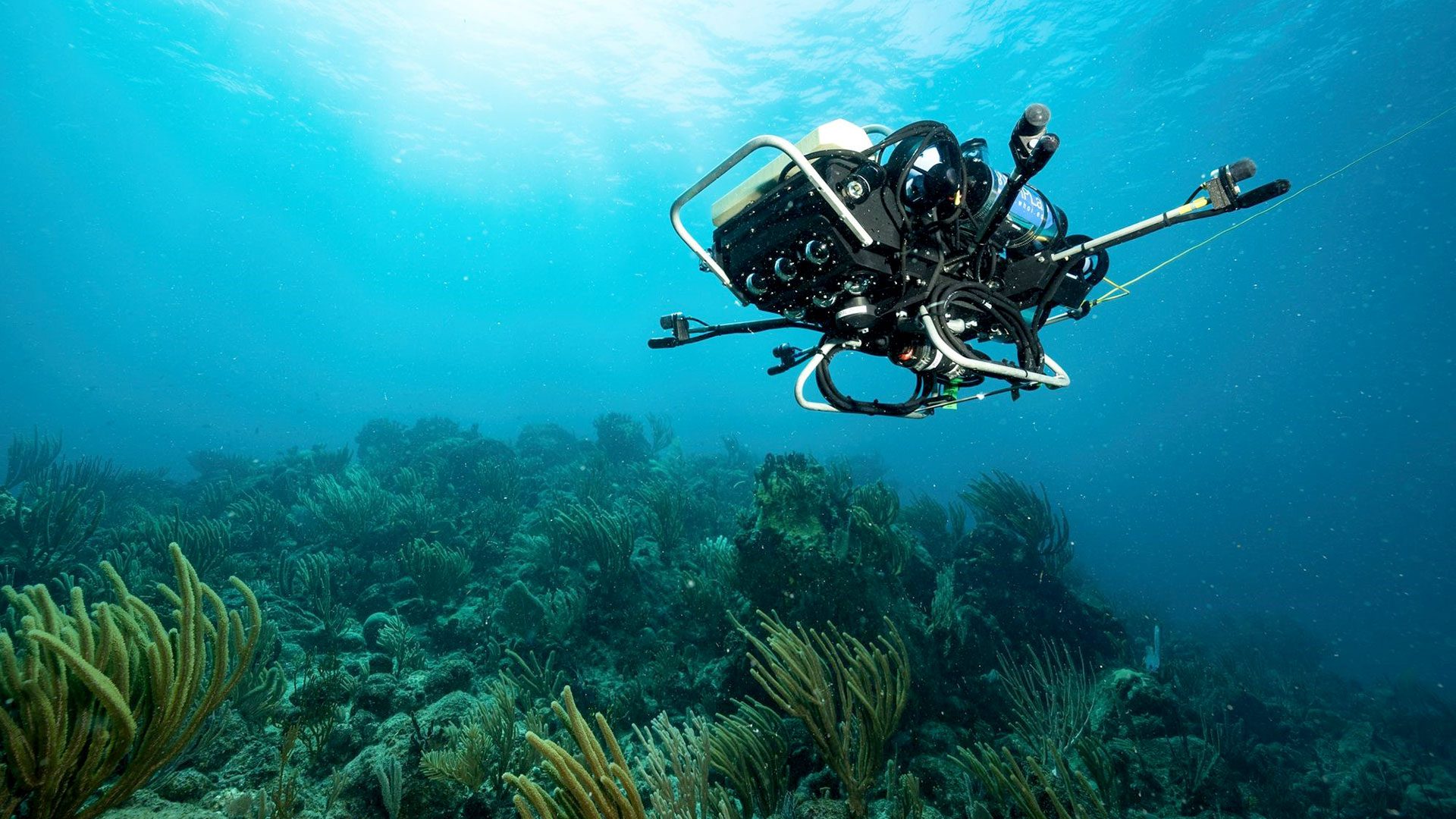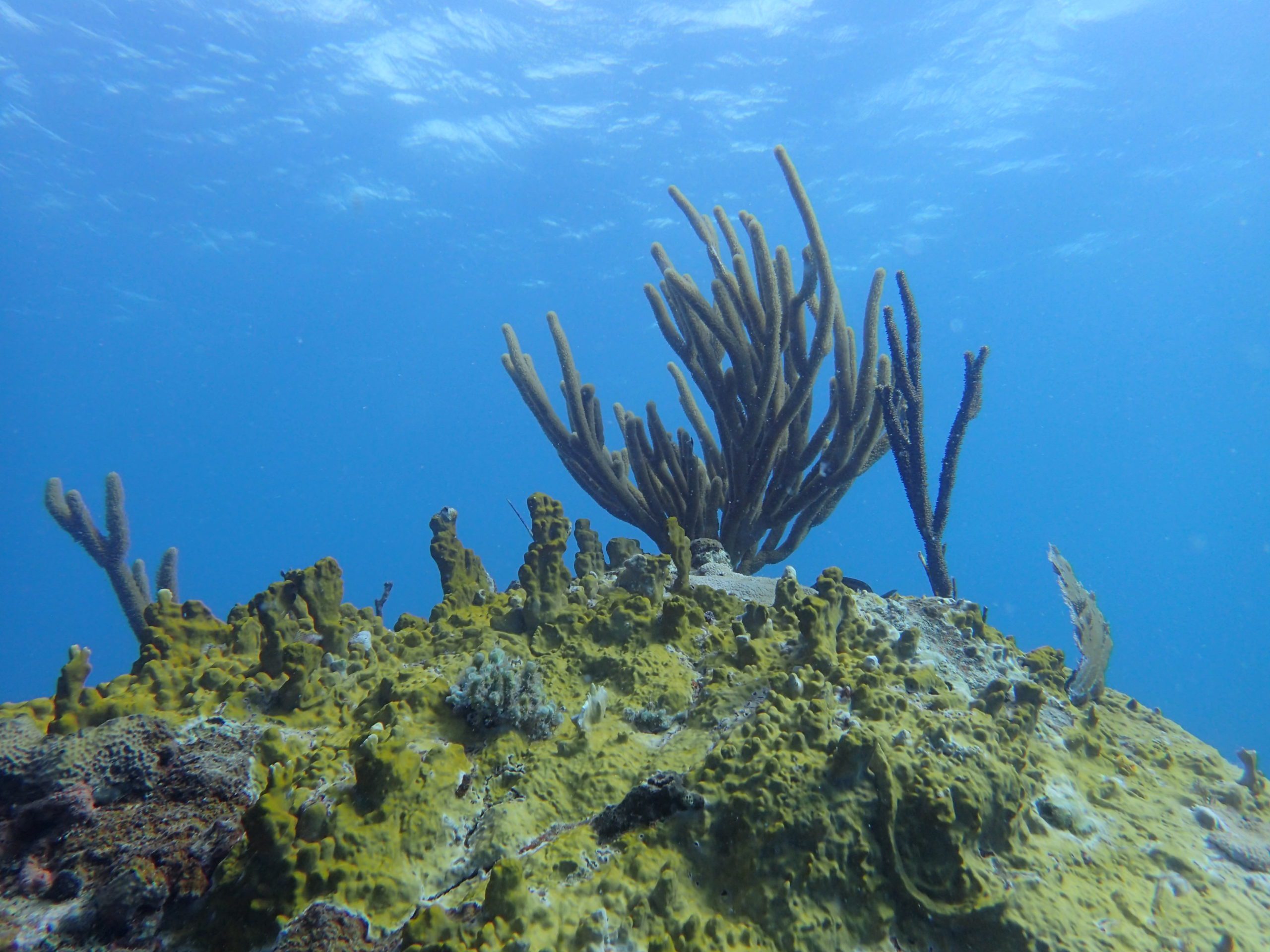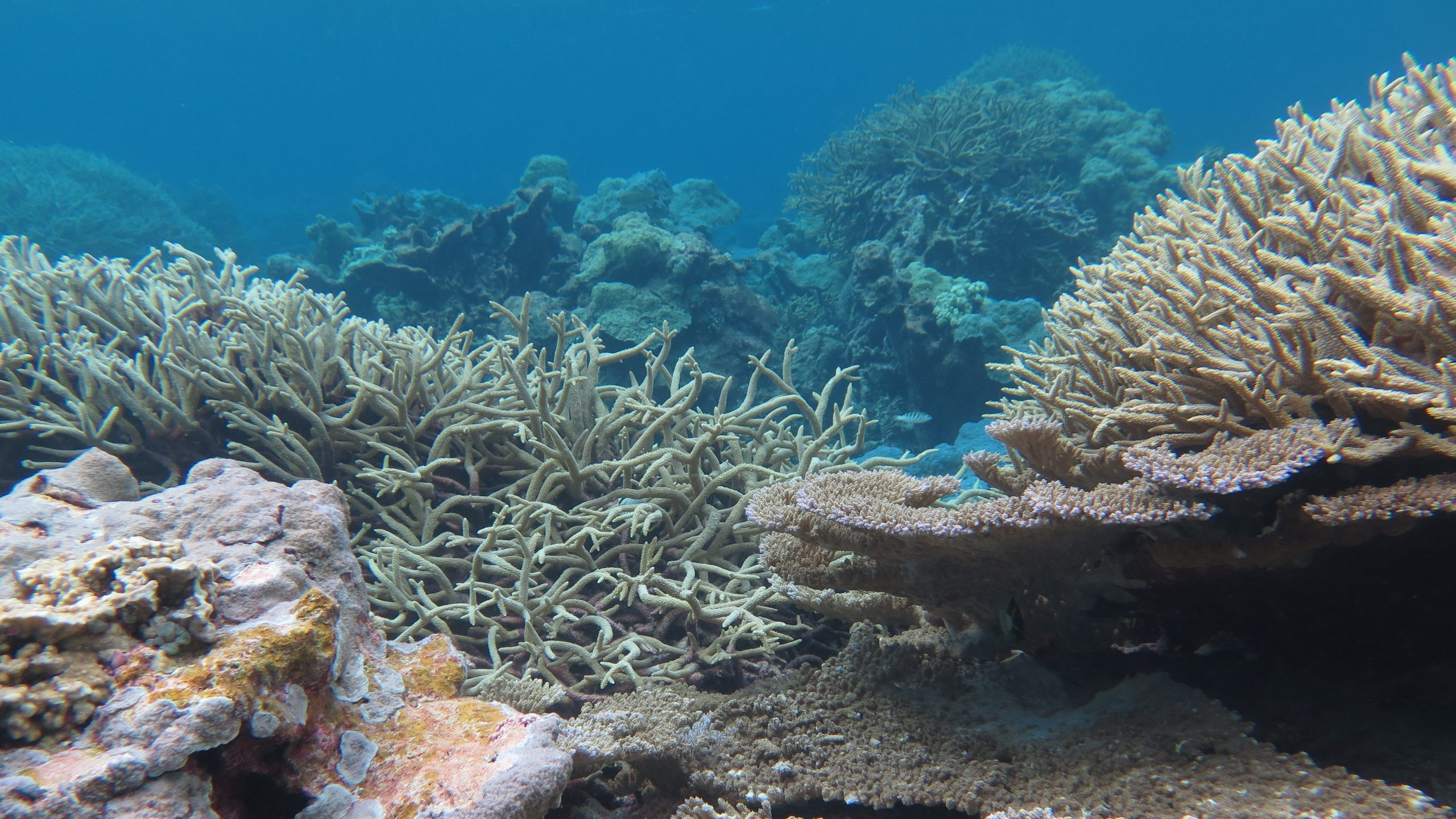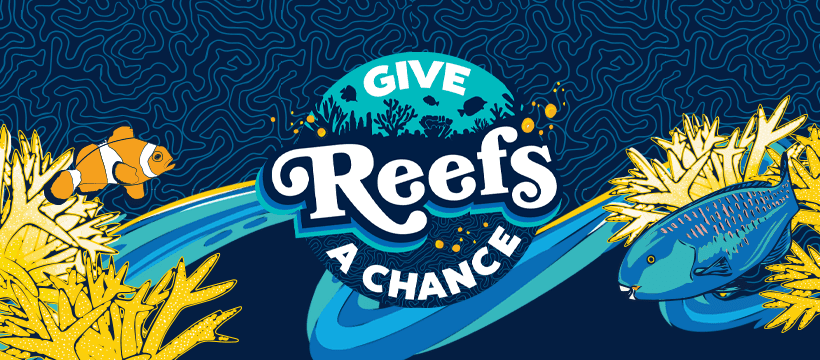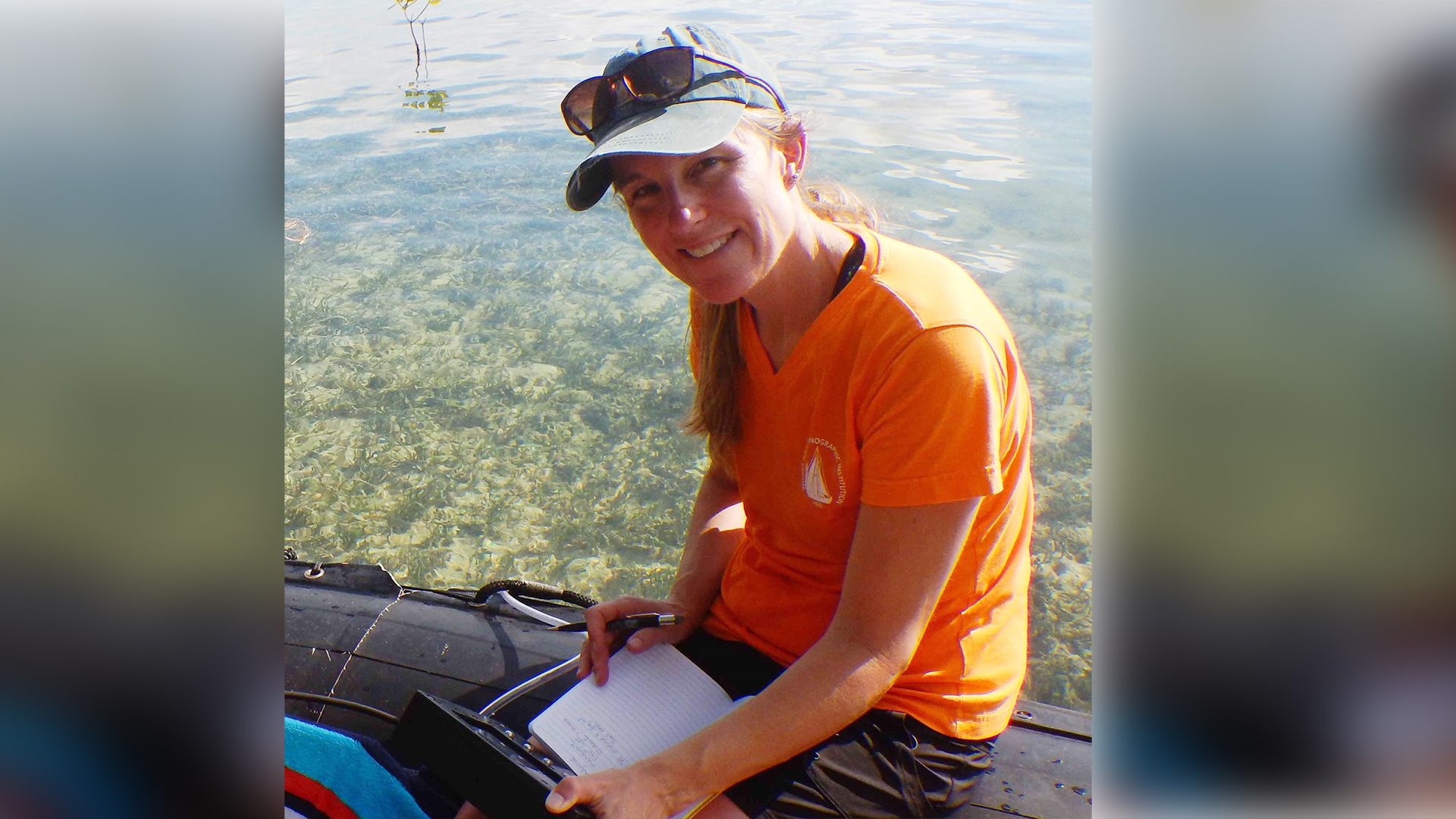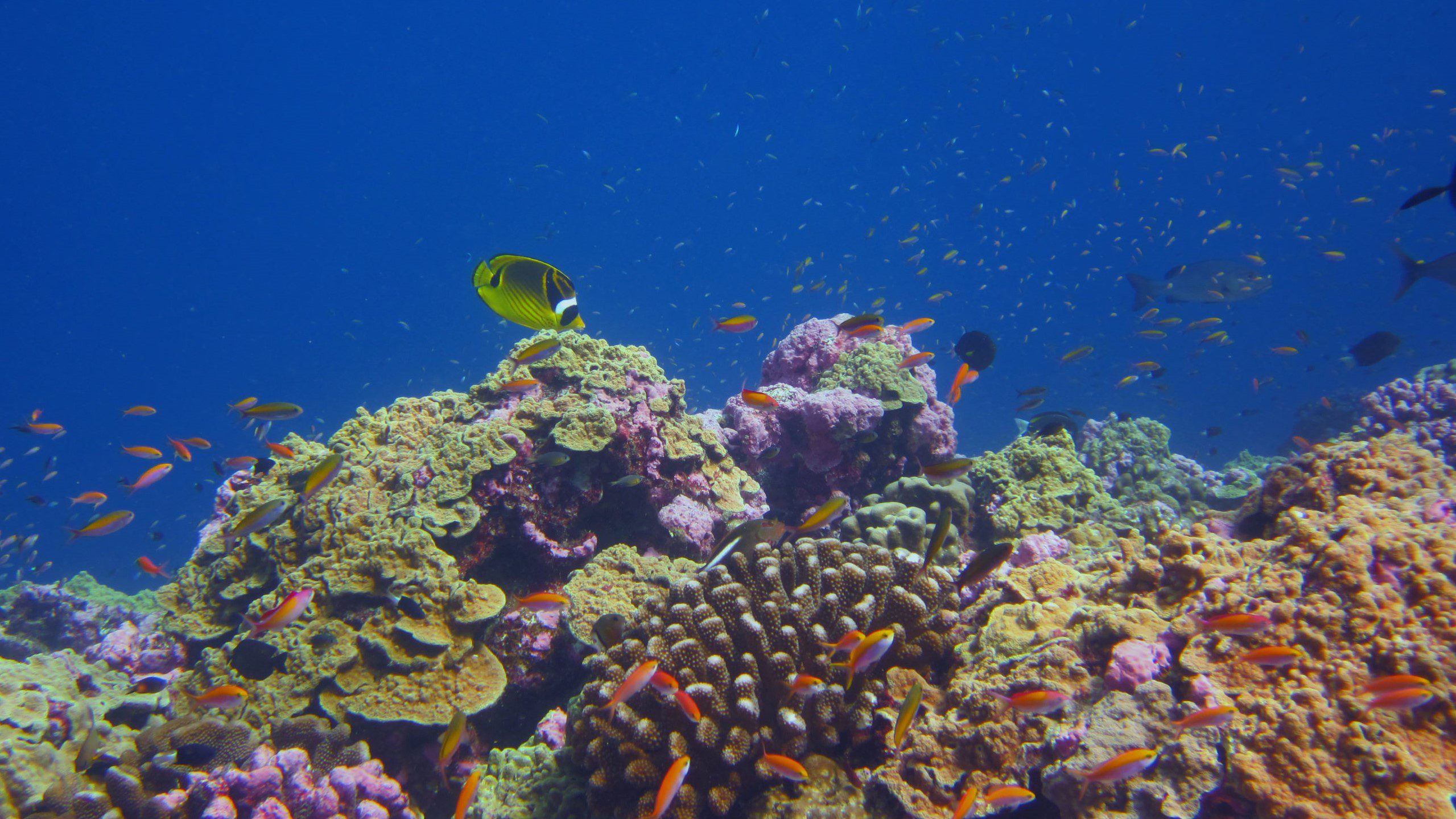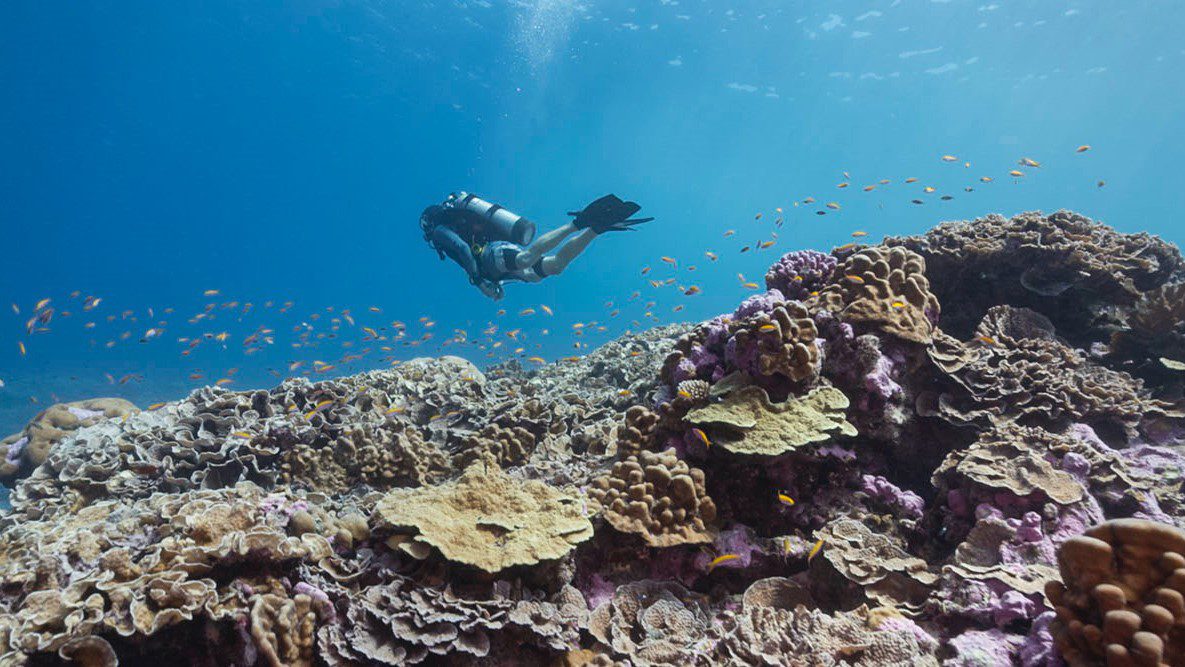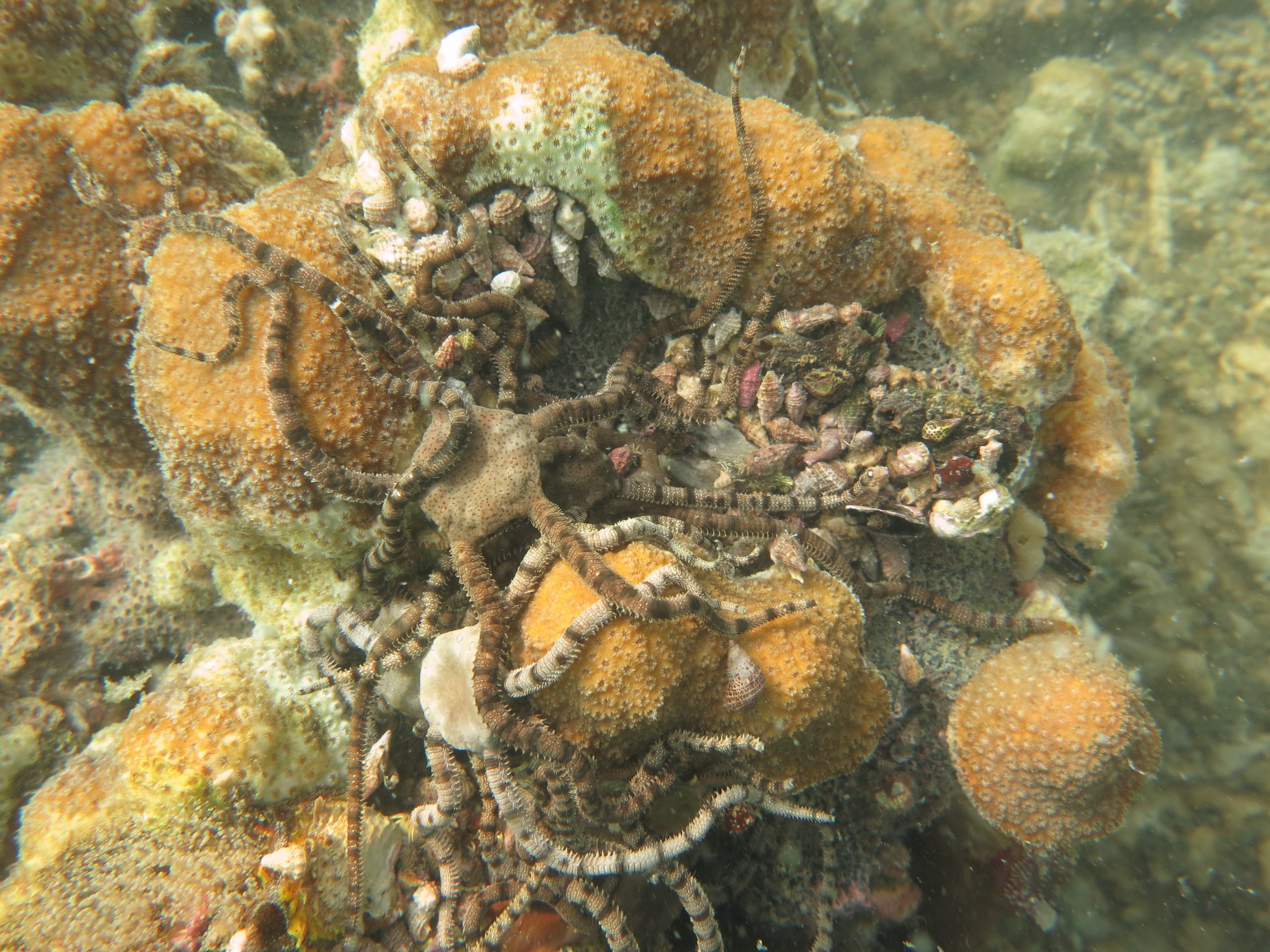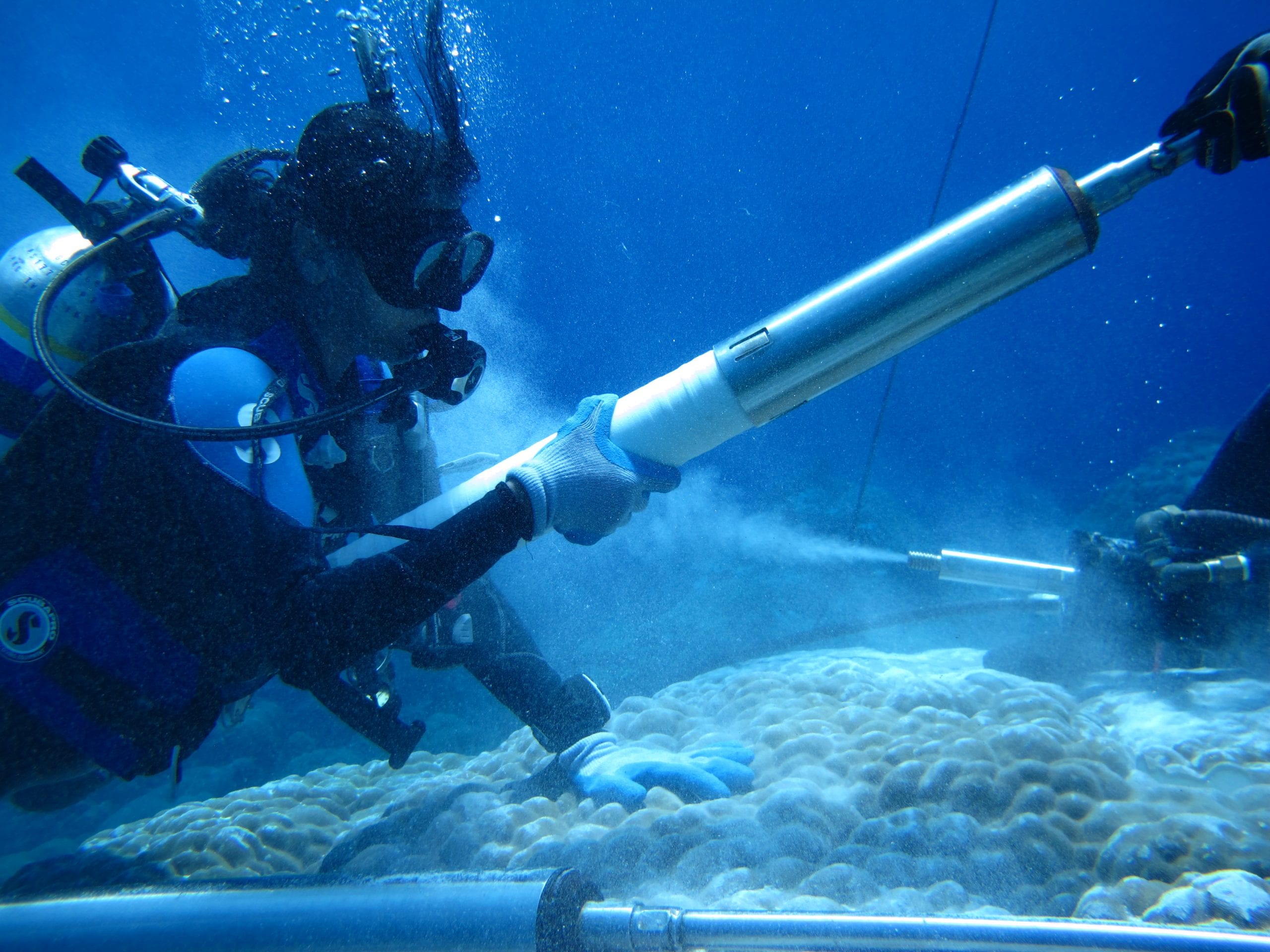News Releases
Woods Hole Oceanographic Institution takes home four Telly Awards
For excellence in video projects “Hope for Corals in Crisis”, and “Give Reefs a Chance” each win a gold and silver
Read MoreScientists Aboard R/V Atlantis Discover Deep-Sea Coral Reefs in the Galápagos
Observations using the newly upgraded human-occupied vehicle Alvin are the first of a deep-water coral reef in the Galápagos Marine Reserve.
The reefs are located at depths between 400-600 m, atop previously unmapped seamounts.
Toward a New Era of Reef Solutions
WHOI coral reef researchers propose a new technology-centered focus to study and conserve coral reefs
Read MoreStudy Examines the Impact of Coral Chemical Compounds on Reef Composition and Health
The study found that the organic chemical compounds produced through metabolism —known as metabolites or exudates—vary significantly by coral species and that the compounds impact the abundances and compositions of reef microorganisms differently.
Read More“Digital Reefs” awarded $5 million
The National Science Foundation (NSF) has awarded Woods Hole Oceanographic Institution (WHOI) $5 million to participate in NSF’s ground breaking Convergence Accelerator Program. The project, led by WHOI scientist Anne Cohen, builds the world’s first Coral Reef Digital Twin, a 4-dimensional virtual replica of a living coral reef powered by state-of-the art data and models.
Read MoreWHOI campaign sheds light on new strategies and solutions for the coral reef crisis
In advance of World Ocean Day on June 8, Woods Hole Oceanographic Institution (WHOI) is launching its Give Reefs a Chance campaign, aimed at raising awareness of what WHOI scientists and engineers are doing to tackle the corals crisis, the importance of coral reefs, and what we can all do to give reefs a chance to survive.
Read MoreWHOI scientist elected as Fellow of the American Academy of Microbiology
Woods Hole Oceanographic Institution scientist elected as Fellow of the American Academy of Microbiology Colleen Hansel, associate scientist at WHOI, has been elected as a Fellow of the American Academy…
Read MoreSome coral reefs are keeping pace with ocean warming
Some coral communities are becoming more heat tolerant as ocean temperatures rise, offering hope for corals in a changing climate. After a series of marine heatwaves hit the Phoenix Islands Protected Area (PIPA) in the central Pacific Ocean, a new study finds the impact of heat stress on the coral communities lessened over time.
Read MoreSurviving extreme heat
A team led by Anne Cohen, a scientist at Woods Hole Oceanographic Institution, received $1.75M in funding from the National Science Foundation (NSF) to study how coral reefs survive extreme heat events caused by climate change. The multidisciplinary project taps into expertise across four WHOI departments to uncover the oceanographic and biological processes that enable corals to survive marine heatwaves.
Read MoreWhat happens to marine life when oxygen is scarce?
A new study co-led by WHOI postdoctoral scholar Maggie Johnson looks closely at the changes occurring in both coral reef and microbial communities near Bocas del Toro during sudden hypoxic events, which occur when there is little to no oxygen in a given area of water.
Read MoreReview Evaluates the Evidence for an Intensifying Indian Ocean Water Cycle
Report Calls for Better Integration of Observations, Models, and Paleo Proxies The Indian Ocean has been warming much more than other ocean basins over the last 50-60 years. While temperature…
Read More

